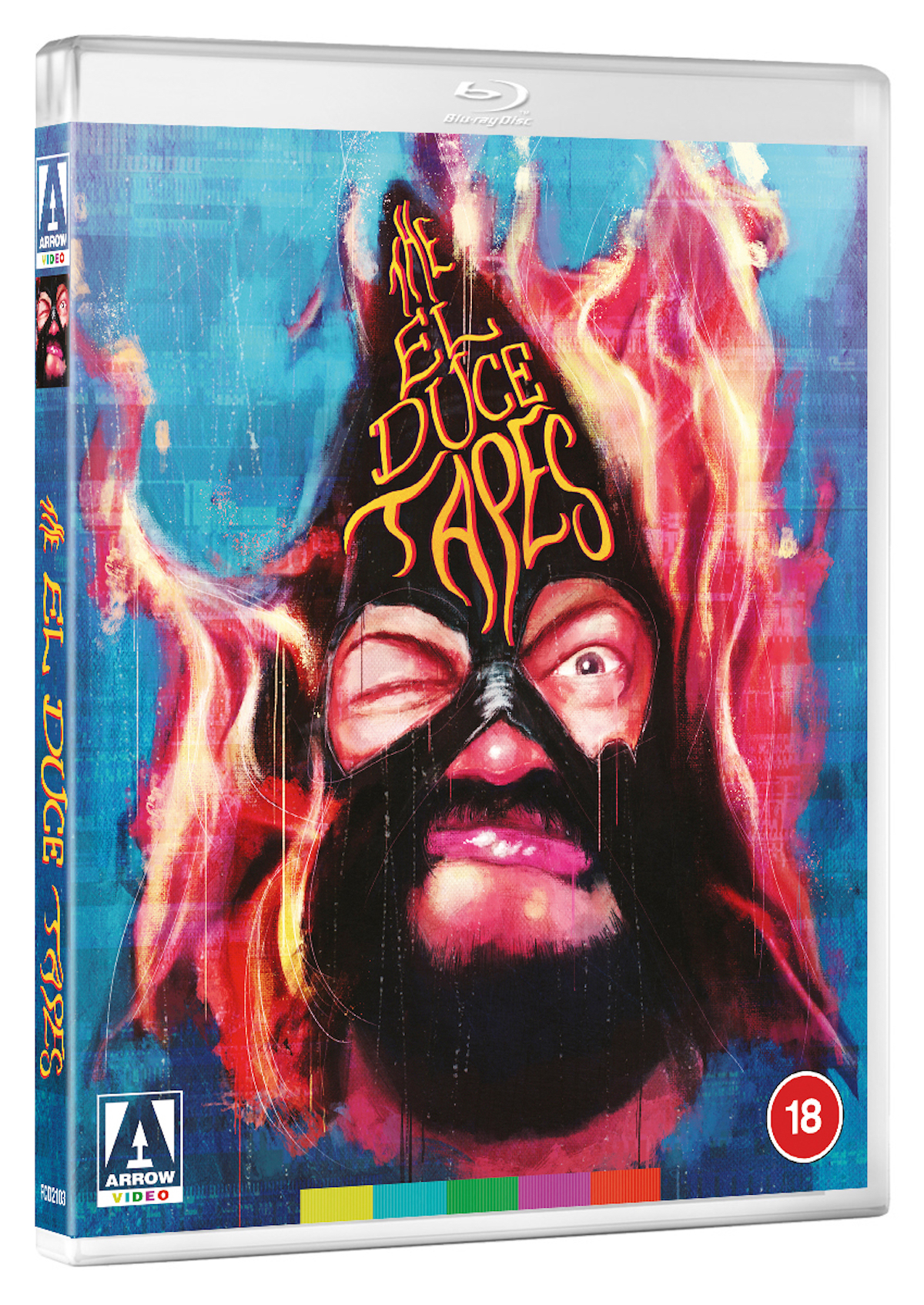THE EL DUCE TAPES (2019)
Documentary based on footage from the 1990s of briefly notorious shock rock band The Mentors and its lead singer, El Duce.

Documentary based on footage from the 1990s of briefly notorious shock rock band The Mentors and its lead singer, El Duce.


The Mentors weren’t your dad’s shock rock band. Long gone were the days of Alice Cooper singing about necrophiliac romance and Gene Simmons wearing cat makeup and spitting fire. It’s 1985, the height of the Reagan years, and the Mentors )led by a pudgy bald man in an executioner’s hood known only as El Duce) had just released their debut album, featuring such timeless classics as “Golden Shower” and “My Erection is Over.” 12 years of tasteless punk rock antics later and El Duce died abruptly in the most appropriately gruesome way imaginable: decapitated by a speeding freight train while drunk out of his mind. The band’s legacy, and by extension El Duce’s legacy, is preserved almost solely in documentary footage by General Hospital actor and devoted Mentors fan Ryan Sexton, footage that Rodney Ascher and David Lawrence have now unearthed and compiled into what aspires to be the shock rock doc to end all shock rock docs, The El Duce Tapes.
The footage, largely filmed between 1990 and 1991, certainly speaks for itself. The documentary opens with a hooded El Duce onstage yelling “everybody who likes to rape women, say ‘sieg heil!’” He’s promptly answered by a chorus of sieg heils from the crowd, which he greets with a Nazi salute—rape jokes and tongue-in-cheek white supremacy being two running motifs throughout the footage. El Duce, an outspoken alcoholic who’s rarely seen in the film without a malt liquor in hand, hardly traffics in subtlety in his music or his lifestyle, and the filmmakers don’t make a big effort to make him come across as likeable. Even when he’s giving one-on-one interviews with Ryan with no audience but the camera, he’s farting and binge-drinking and talking about his preferred procedure for date rape. It’s all in the name of the satire (for all the button-pushing, this man-child couldn’t hurt a fly), but knowing that it’s a performance doesn’t make him much more endearing when he’s joking to a woman on Jerry Springer that she was “probably asking for it” when she was raped at the age of 12.
The band’s crude ‘are-you-triggered-yet?’ gimmick makes some of the more sober revelations all the more surprising. When Duce talks about how his father, who designed napalm bombs used in the Vietnam war, was physically abusive to him and his siblings, he drops the act for just a split-second long enough to see the man beneath the hood. El Duce’s true personal politics are hard to discern because he rarely breaks character. He speaks in an interview about not wanting to play at an Aryan Nation rally that extended an invitation to The Mentors because he has black friends and doesn’t agree with what they represent, then immediately segues into saying that if he were the president he’d build a border wall and have televised firing squads for Mexican immigrants every evening.
Perhaps even more shocking than El Duce’s traumatic past and the thin line between his personality and stage persona is the revelation that he doesn’t listen to punk: their taste lies almost exclusively in jazz and jazz fusion. El Duce talks about his love of Herb Alpert and Chick Corea records, and his bandmates wax poetic over how much of a drum prodigy he was when he was younger. The image painted by Sexton’s footage is of a man who could’ve been a happy, successful musician but who was broken by a painful childhood and a whole lot of deeply ingrained self-loathing that came with it. In his drunker moments in the interviews, he confesses that he hates himself and his lifestyle of perpetual couch-surfing makes him a nervous wreck, which doesn’t come as a big surprise given the few moments of sober vulnerability that come through.
Co-directors Rodney Ascher and David Lawrence, for the most part, know better than to mess with the goldmine of video footage that Ryan Sexton placed in their lap, and that’s where their documentary shines. The few moments of creative liberty on their part are largely unobtrusive, in particular cutting to archival clips from older films while El Duce and his bandmates talk about their lives and the band as well as splicing in an original score by the band Nilbog. It’s generous to even call Ascher and Lawrence directors so much as editors who strung this footage together in a coherent and presentable way, with the occasional VHS title card dividing it up. Towards the end, though, they start to make some connections in the material that maybe aren’t entirely there, splicing in clips of South Park, Bill Maher interviewing Milo Yiannopoulos, and the music video for Blurred Lines, as if to say “this is the legacy that an unknown alcoholic musician making rape jokes had on American culture.”
The reality is, unfortunately, that he probably had little impact on the broader cultural scene beyond being a raunchy footnote in the history of punk, and that’s perfectly all right. In fact, it’s probably what El Duce himself would have wanted—to be a cult figure somewhere between GG Allin and Gene Simmons, memorialised in an obscure Kurt Cobain documentary and the 1985 PMRC music censorship hearings. He’s remembered exactly as he lived: a champion of politically incorrect shock rock for the initiated and a paragon of rock n’ roll’s satanic, misogynistic underbelly for parents and prudes everywhere.
USA | 2019 | 104 MINUTES | 1.50:1 | COLOUR | ENGLISH
directors: Rodney Ascher, David Lawrence & Ryan Sexton.
starring: Steve Broy, Eric Carlson, El Duce, Gwar, Bill Maher, Jerry Springer, Robin Thicke & Milo Yiannopoulos (archive footage).
